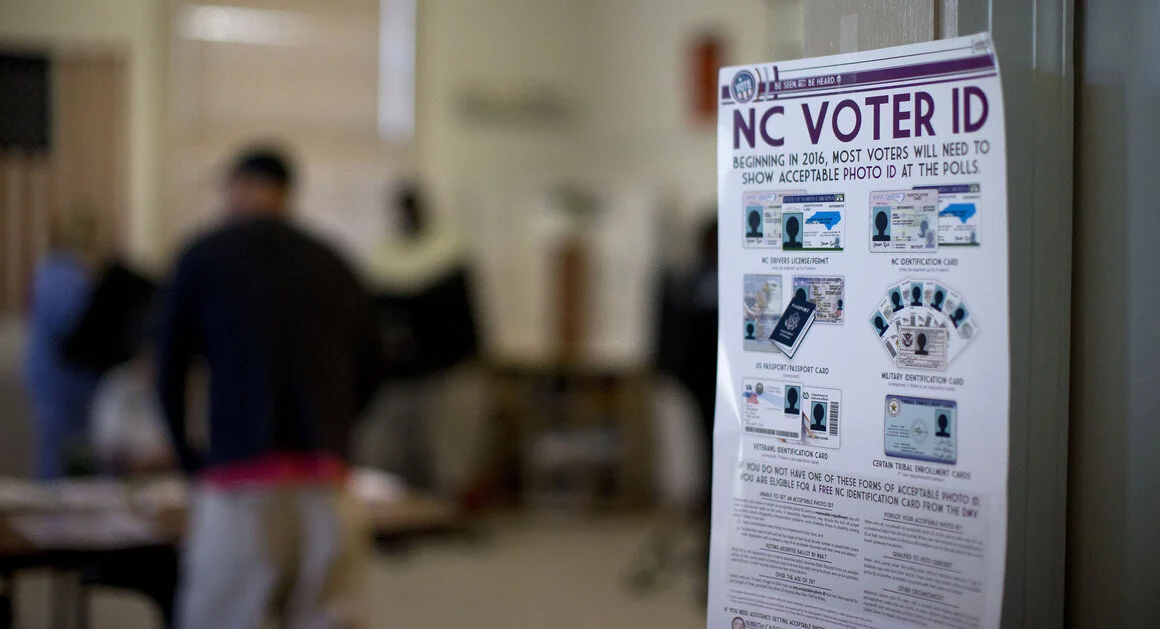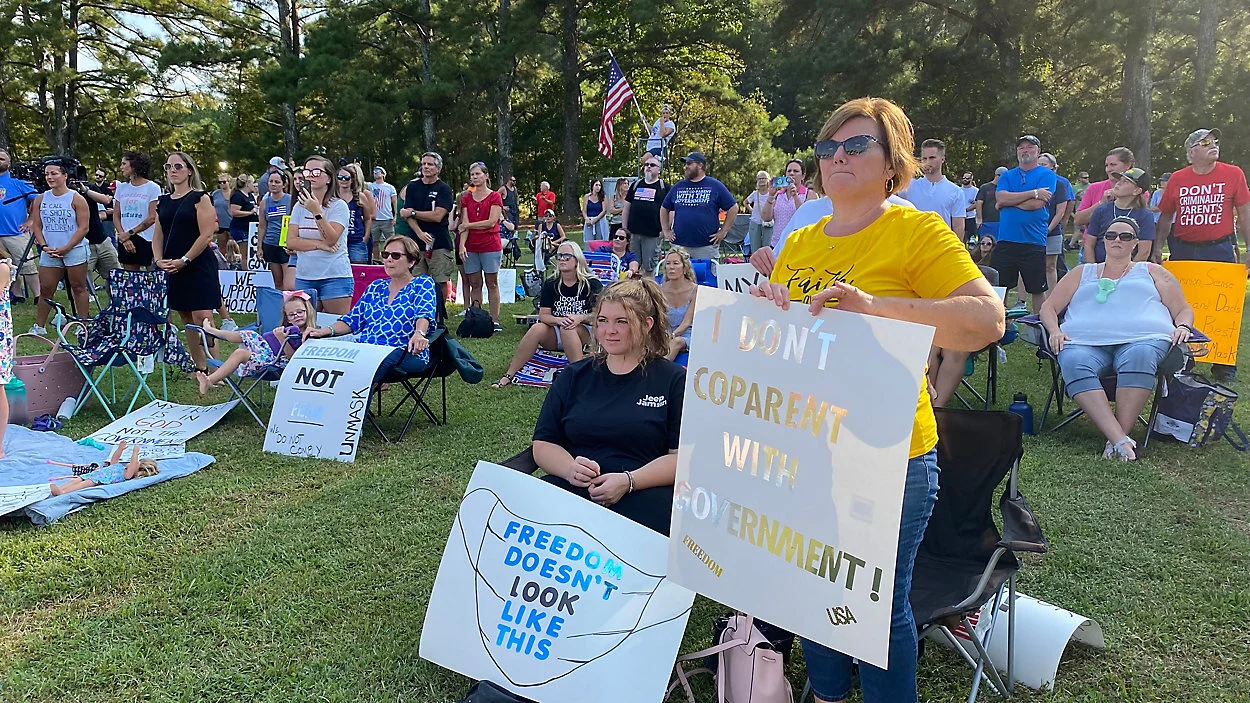“After three years without a comprehensive state budget and months of negotiations between the two parties in the legislature and the governor, North Carolina finally has a budget for fiscal years 2021-2023.”
Read MoreThe U.S. Securities and Exchange Commission (SEC) announced in October that its investigation into NC GOP Senator Richard Burr and his brother-in-law Gerald Fauth was still underway. Burr sold $1.65 million in stock in “February 2020, just before the outbreak of the Coronavirus pandemic. The court filings by the SEC state "Among other things, the Commission is investigating whether, on February 13, 2020, Senator Burr sold stocks on the basis of material nonpublic information in violation of the federal securities laws." One of these laws in question is the 2012 STOCK Act which prohibits legislators from trading stock based on private information. Senator Burr notably voted against this bill.”
Read More“Jeff Jackson: current state senator, major in the Army National Guard, UNC-Chapel Hill Law school alum, and most recently one of the two main Democratic candidates vying for the United States Senate seat, vacated by the retiring Richard Burr, paid “the Pit” a visit last week as part of his statewide college town hall tour. In his town hall, last week, Jackson addressed a crowd of around 500, comprised primarily of UNC-Chapel Hill students. Jackson touched on gerrymandering, climate change, the rural-urban divide, criminal justice reform, mental health, and the increasing permeance of politics in public schools, in his introductory address and answered students’ questions afterwards.”
Read More“Local governments may not be seen as important; however, they have an influence on the day-to-day lives of citizens. Local governments are responsible for maintaining basic services such as water, roads, public safety, parking, etc. These are services that residents deal with routinely.”
Read More“Overall, while North Carolinians may agree that public education is lacking in the state, there still is much debate to be had surrounding the funding of improvements.”
Read More“In a viral video, North Carolina’s Lieutenant Governor Mark Robinson is seen making homophobic and transphobic comments, saying children should not be taught about “transgenderism, homosexuality, any of that filth.” Robinson faced significant backlash for his comments, including condemnations from the White House and Governor Roy Cooper.”
Read More“NAACP v. Moore could have long-term ramifications for North Carolina’s legislative and judicial landscapes, as it tackles questions on the General Assembly’s authority to pass referenda and judges’ discretion to recuse themselves from cases.”
Read More“After a long and arduous debate, this past Summer over whether or not to grant New York Times writer Nikole Hannah-Jones a tenured faculty position at the Hussman School of Journalism and Media, the American Association of University Professors (AAUP) is investigating “structural racism” within the UNC System. Their investigation is focused primarily on UNC Chapel Hill, which the AAUP claims “mishandled” the procedure with Hannah-Jones. More broadly the committee will investigate what it sees as “a pattern of egregious violations of principles of academic governance and persistent structural racism.”
Read More“The increased use of vetoes seems to indicate that the Governor will only accept bills that enjoy strong bipartisan support. So, with a lack of a veto-proof majority in the legislature, the Republicans are forced to play by these rules even if they believe the Attorney General does not.”
Read More“The dispute currently playing out is no isolated incident, but rather the most recent episode in a decades-long fight against a discriminatory system that speaks to broader questions about who bears the burden of ecological crises and the fight against climate change.”
Read More“A three-judge panel recently struck down North Carolina Senate Bill 824, a law enacting a photo voter ID requirement, saying that it would unfairly target Black voters and is therefore unconstitutional. How did we get here and what is next for voter ID requirements in the Tar Heel State?”
Read More“Decreased funding for public education in North Carolina is only one example of the much larger issue of school privatization. Yet, it is the most pressing because it directly affects students in the classroom. As legislators continue to view charter schools as an adequate alternative to traditional public schools, the public schools across the state suffer.”
Read More“North Carolina remains without an updated state budget this year, as legislators have not yet decided on a new state budget for the fiscal year. Negotiations between the governor, the House, and the Senate are set to start this week, at the beginning of October.”
Read More“The monthly debates, although contentious, allow each side to ensure that their voices are heard on this highly controversial issue. It also allows the current policy to be continually tested to show its strengths and weaknesses, allowing the board members and parents to weigh each side.”
Read More“As the Board of Governors and the Board of Trustees continue to take a larger, politicized role in university affairs without consulting student leaders and faculty members, this coalition may be the final hope to bring autonomy back to Chapel Hill.”
Read More“Cooper’s claim that the bill [regarding protests] is an attempt to deter people from exercising their constitutional rights is highlighted by the timing of the bill’s introduction during a wave of protests in which many of the participants were African-American, alongside the fact that Republicans have passed legislation considered discriminatory against African-Americans before.”
Read More“While the 2020 elections were monumental for a number of reasons, the Republican victories in North Carolina’s legislature have given the party the opportunity to shape the state’s politics for the next ten years.”
Read More“The town hall, which was held in the Pit at UNC-Chapel Hill and directed at student journalists, is one of several events throughout Beasley’s campaign to connect to North Carolina college students.”
Read More“In examining the bills, the impact of input by pro-law enforcement organizations like the North Carolina Sheriffs’ Association (NCSA) is evident. For example, while HB 436 mandates mental health awareness training for officers, it requires only two hours of training every three years – hardly a step up from the previous requirements, and a win for the NCSA in maintaining the status quo.”
Read More


















